The Ghana Crop Disease Detection Challenge Ecosystem Event held at the Alisa Hotel North Ridge, Accra, on 17th January 2025, marked the successful culmination of an initiative to harness artificial intelligence (AI) for agricultural innovation. It convened key stakeholders in artificial intelligence (AI), climate change, and agriculture to discuss innovative solutions for sustainable development.
The event, organised by the Responsible AI Lab (RAIL) and FAIR Forward (GIZ), gathered participants from renowned institutions, including the Crop Research Institute (CRI) under the Council for Scientific and Industrial Research (CSIR), the Ministry of Food and Agriculture, Plant Protection and Regulation Services Directorate (PPRSD), 3Farmmate Robotics Limited, VAXUS AI, Zindi, KaraAgro AI, and many others.

The Ghana Crop Disease Challenge winners were announced, showcasing cutting-edge AI solutions for identifying crop diseases. The winners are:
- First Place: Ronny Polle and Adeyinka Sotunde (₵65,000)
- Second Place: Stefan Strydom (₵40,000)
- Third Place: Raphael Laibuni Kiminya (₵25,000)
These innovative solutions leveraged lightweight, offline AI models capable of detecting and isolating crop diseases with remarkable precision. One standout feature was the ability of these models to function in resource-constrained environments, providing actionable insights for smallholder farmers.
Mr. Darlington Akogo, CEO and Founder of KaraAgro AI Foundation, commended the ingenuity of the participants and highlighted how these solutions could revolutionise agriculture in Ghana and beyond.
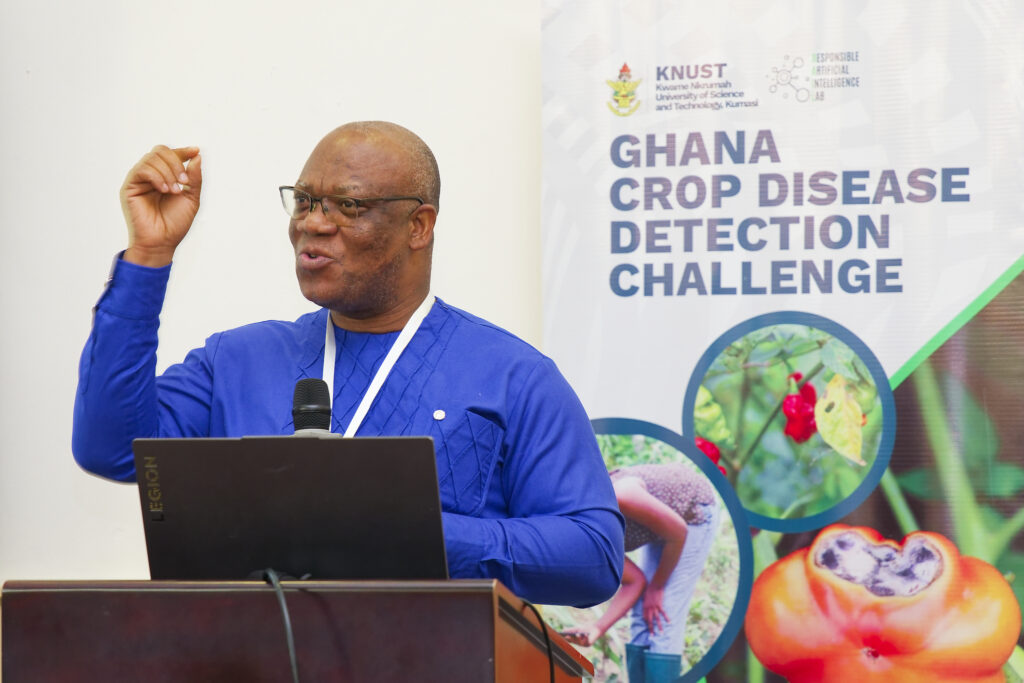
Prof. Jerry John Kponyo, Principal Investigator and Scientific Director of the Responsible AI Lab (RAIL), mentioned RAIL’s commitment to leveraging AI for the achievement of Sustainable Development Goals (SDGs), particularly in areas such as health, agriculture, education, energy, illegal mining, and inclusion.
Prof. Kponyo highlighted the importance of datasets in AI-driven solutions and noted RAIL’s collaboration with the Plant Protection and Regulatory Services (PPRSD) and the Ministry of Agriculture to gather Afrocentric datasets on crop diseases. He announced RAIL’s Agrivoltaic Initiative, which integrates farming and solar energy generation with demonstration sites in Tamale and Kumasi. Notably, the first dataset on agrivoltaics has been published and is now accessible on Kaggle (🔗 Access the dataset here)
Prof. Kponyo stressed the need for constructive partnerships (SDG 17) and collaboration to maximise resources and build upon existing work.
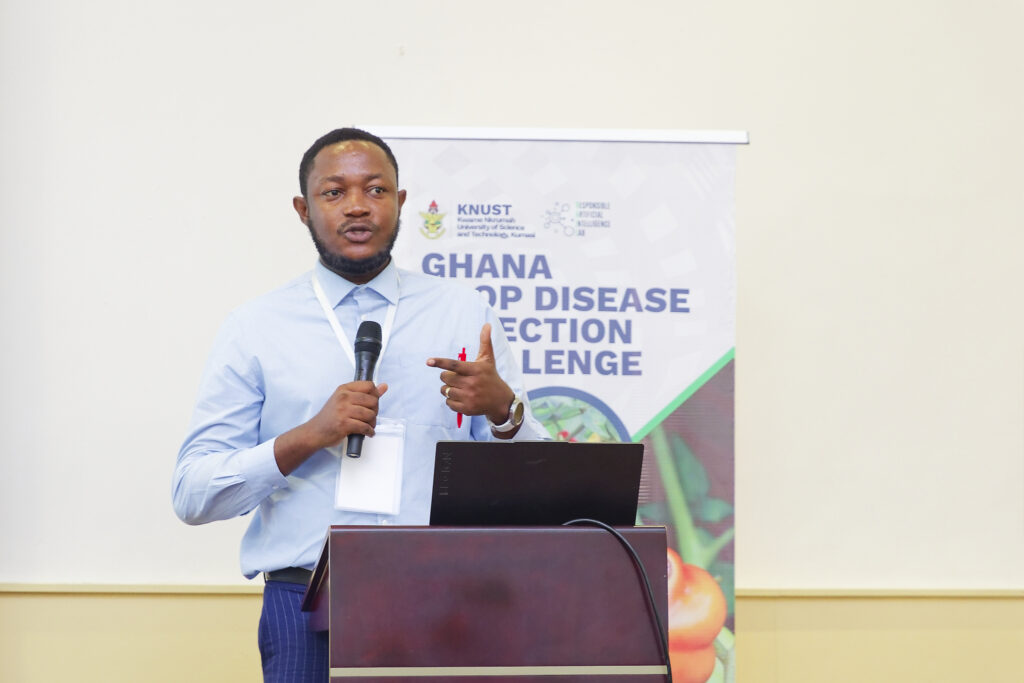
Mr. Elikplim Sabblah from FAIR Forward, GIZ, reaffirmed GIZ’s commitment to advancing AI in Ghana and beyond. He described FAIR Forward as a global initiative operating in seven countries to democratise AI through resource access and policy frameworks. He iterated the importance of events like this, which explore the intersection of AI, climate change, and agriculture to contribute to the SDGs.
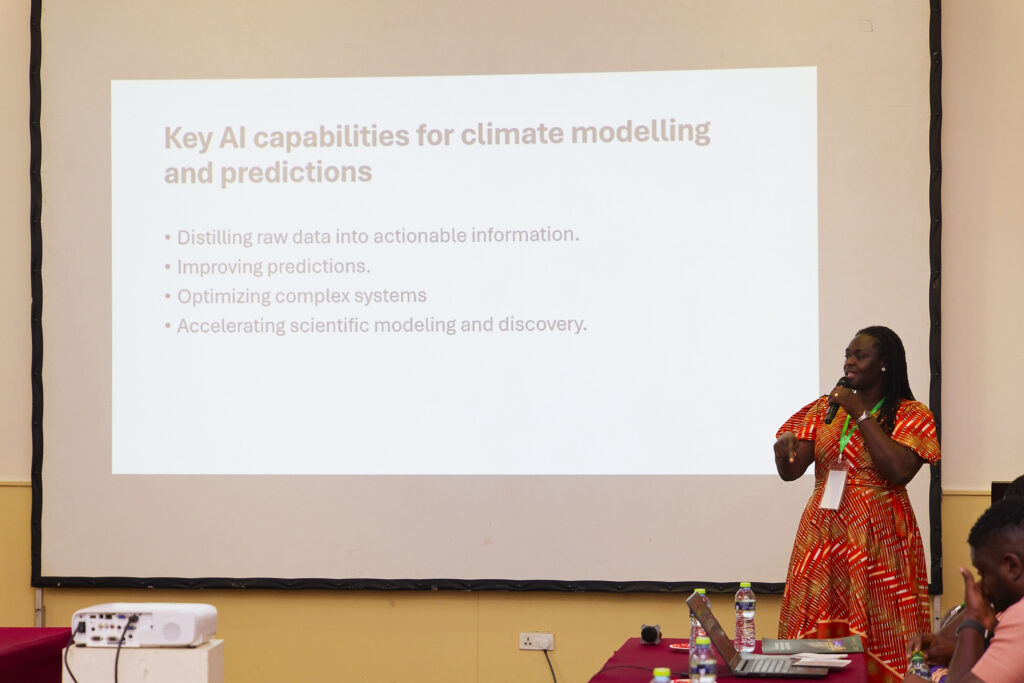
Prof. Nana Ama Browne Klutse, Vice-Chair of the United Nations Intergovernmental Panel on Climate Change (IPCC) Working Group and the CEO of the Environmental Protection Agency delivered an engaging presentation on the role of technology in addressing climate change. She stressed the devastating effects of climate change on agriculture, particularly in Ghana, where most farmers practice rainfed agriculture.
Prof. Klutse outlined how AI can help create actionable climate models, improve predictions, and optimise systems. She called for investment in AI infrastructure, capacity building, and inclusive approaches involving smallholder farmers, women, and youth in developing solutions.
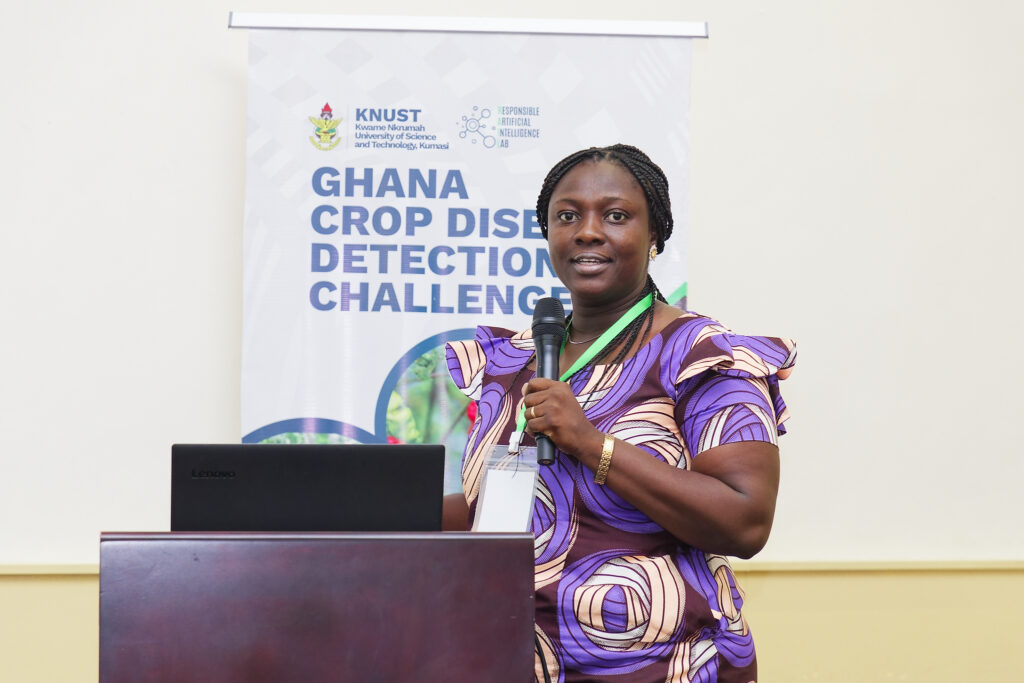
Madam Akua Tiwaa Sebe from PPRSD shared insights on dataset creation and the challenges faced in collecting data. She said 18 districts were visited in the Ashanti Region to gather datasets on three crops: tomato, pepper and corn. “Some challenges faced were data quality and resource limitations,” she said.
Participants advocated for strengthened collaboration within the agriculture ecosystem, co-development of user-centric solutions, innovation industrialisation, and a centralised data repository.
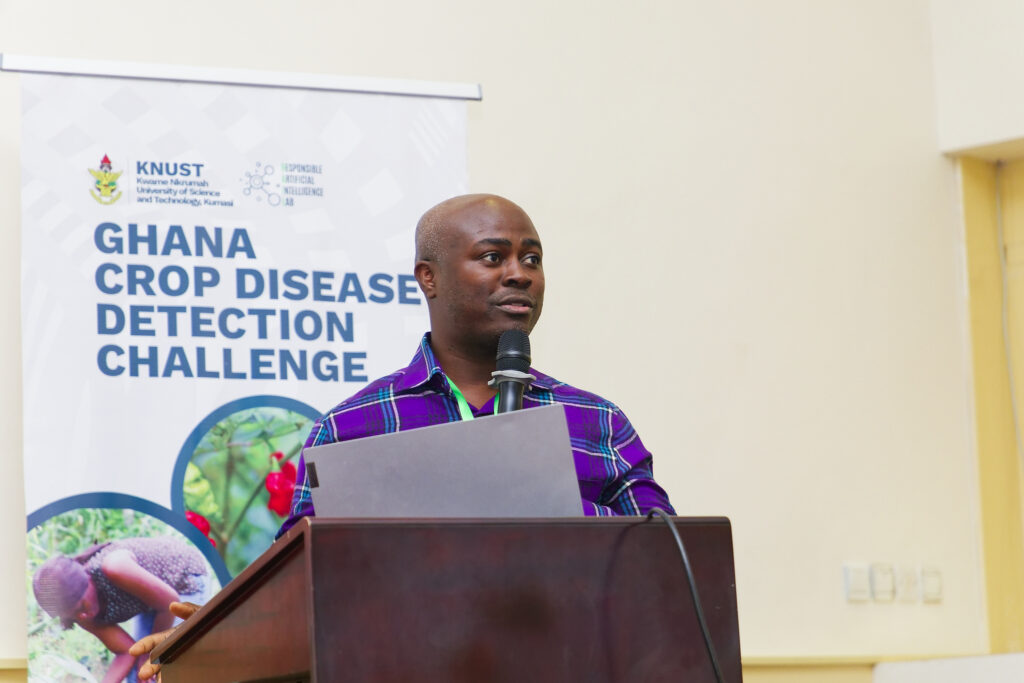
Dr. Stephen Moore, Co-founder of Ghana NLP and researcher at the University of Cape Coast, discussed AI-based solutions for detecting maise and cocoa diseases. He detailed the deployment of lightweight model variants, Res-Net-9 and Efficient-Net-b4 while acknowledging challenges such as data annotation and limited computing capacity.
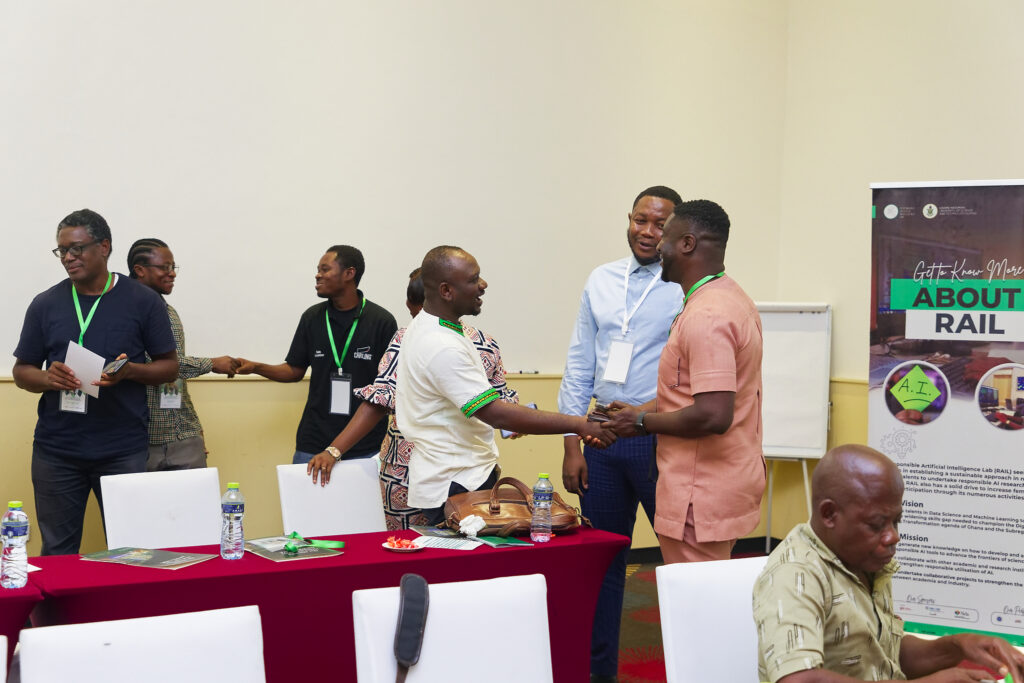
In his concluding address, Prof. Jerry John Kponyo encouraged stakeholders to adopt innovative solutions and announced RAIL’s pilot farm initiative to deploy AI tools for real-world testing. He expressed hope that this event marks the beginning of sustained collaboration within the ecosystem.